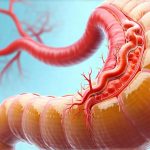Digestive Enzymes Influence Bowel Movements
The intricate process of digestion is far more than simply breaking down food. It’s a symphony of biological events, orchestrated by various organs, hormones, and crucially, enzymes. These remarkable proteins are the workhorses that dismantle complex molecules into smaller, absorbable units, enabling our bodies to extract essential nutrients. When this enzymatic process falters—due to deficiency, dietary factors, or underlying health conditions—it can profoundly impact bowel movements, leading to a spectrum of issues from constipation and diarrhea to bloating and discomfort. Understanding how digestive enzymes influence these outcomes is key to appreciating the delicate balance within our gut and fostering optimal digestive health.
Bowel movement regularity, consistency, and overall comfort are not solely determined by fiber intake or hydration levels, although those are undeniably important. They’re intrinsically linked to the efficiency of nutrient absorption and waste elimination – processes heavily reliant on effective enzymatic digestion. Incomplete breakdown of food can lead to fermentation in the colon, creating gas, bloating, and altered stool characteristics. Conversely, rapid transit time due to undigested fats or sugars can result in diarrhea. Essentially, digestive enzymes act as gatekeepers, influencing how smoothly and effectively our digestive system functions, directly impacting the final product – our bowel movements.
The Role of Specific Enzymes
Different food components require different enzymatic action for proper digestion. Carbohydrates are broken down by amylase, proteins by proteases (like trypsin and chymotrypsin), and fats by lipase. A deficiency in any one of these enzyme categories can lead to specific digestive disturbances. For example, lactose intolerance, a common condition where the body doesn’t produce enough lactase – the enzyme needed to digest lactose (milk sugar) – often results in bloating, gas, and diarrhea after consuming dairy products. Similarly, insufficient lipase can hinder fat digestion, causing steatorrhea—fatty stools that may float or be difficult to flush.
The location of enzymatic action is also crucial. Most carbohydrate digestion begins in the mouth with salivary amylase, continues in the small intestine with pancreatic amylase, and finishes with enzymes present on the intestinal wall itself. Protein digestion primarily occurs in the stomach and duodenum (the first part of the small intestine), while fat digestion mainly takes place in the small intestine with the help of bile acids and pancreatic lipase. This sequential process requires a fully functioning enzymatic system to ensure complete breakdown and absorption, minimizing undigested material reaching the colon.
A healthy gut microbiome actually contributes to some degree of enzymatic activity too! Certain beneficial bacteria produce enzymes that can further break down complex carbohydrates that human enzymes may struggle with. This symbiotic relationship highlights the interconnectedness between our digestive enzyme production and overall gut health – a compromised microbiome can exacerbate enzymatic deficiencies, creating a vicious cycle.
Enzyme Deficiencies & Constipation
Constipation isn’t always about lack of fiber; it often stems from sluggish bowel motility or incomplete digestion. While fiber adds bulk to stool, enzymes are needed to break down food into smaller particles that the body can readily absorb. When this process is compromised, undigested food remains in the digestive tract for longer periods, potentially leading to dehydration as water is drawn into the colon attempting to soften the mass. This creates harder, more difficult-to-pass stools.
- A deficiency in carbohydrate enzymes (like amylase) can lead to fermentation of undigested carbohydrates in the colon, producing gas and bloating that slow down colonic transit time.
- Insufficient fat digestion due to lipase deficiency can result in a build-up of undigested fats, creating a sticky, difficult-to-move stool mass.
- Even protein maldigestion can contribute as it impacts overall gut function and nutrient absorption leading to imbalances that affect bowel regularity.
It’s important to note that constipation is often multifactorial, but addressing enzymatic deficiencies alongside lifestyle factors like hydration and fiber intake can be a crucial part of restoring healthy bowel movements. Identifying the root cause through dietary adjustments or working with a healthcare professional is essential.
Enzyme Supplementation: A Potential Aid?
Enzyme supplementation has become increasingly popular as a way to address digestive issues, but it’s not a one-size-fits-all solution. Broad-spectrum enzyme formulas containing amylase, protease, and lipase are available over the counter, but their effectiveness varies greatly depending on individual needs and underlying conditions. The key is understanding what specific enzymes your body may be lacking – lactose for dairy sensitivity, for instance, or gluten digestive enzymes for those with sensitivities.
Supplementation should ideally complement, not replace, a healthy diet rich in naturally enzyme-containing foods like pineapple (bromelain), papaya (papain), and fermented products. It’s also crucial to consider the timing of supplementation; taking enzymes with meals allows them to work on food as it’s being digested, maximizing their impact. Always consult with a healthcare professional before starting any new supplement regimen, especially if you have underlying health conditions or are taking medications.
The Gut-Enzyme Connection: A Holistic Approach
The gut microbiome plays an integral role in digestion and enzyme production. A diverse and balanced microbiome can actually enhance enzymatic activity by producing its own enzymes to assist with digestion, particularly of complex carbohydrates that our bodies struggle with. Conversely, a disrupted microbiome (dysbiosis) can lead to reduced enzyme production and impaired digestive function, exacerbating existing deficiencies.
- Probiotic supplementation, alongside enzyme support, can help restore microbial balance and improve overall gut health.
- Dietary choices significantly impact the microbiome: A diet rich in prebiotic fibers feeds beneficial bacteria, promoting a healthy gut ecosystem.
- Stress management is also crucial; chronic stress negatively impacts gut motility and microbiome composition, potentially hindering enzymatic activity.
Therefore, addressing bowel movement issues requires a holistic approach that considers not just enzyme supplementation but also gut health, dietary choices, and lifestyle factors. Prioritizing a balanced diet, managing stress, and fostering a thriving gut microbiome are essential for optimal digestive function and regular, comfortable bowel movements.


















